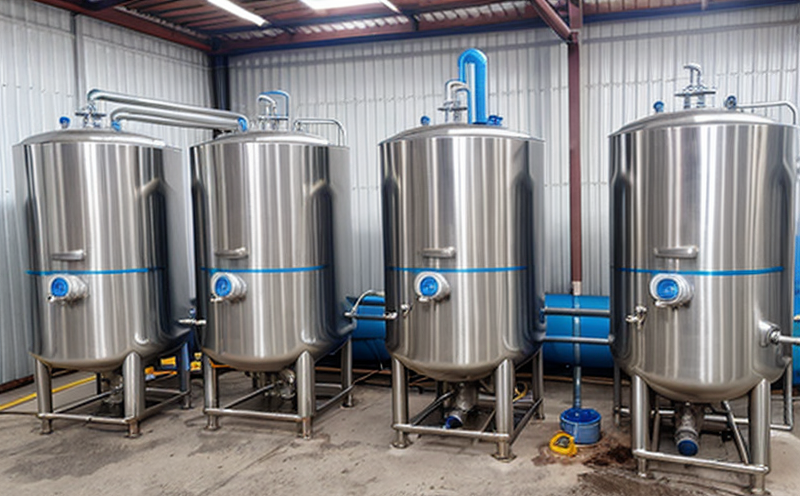ASTM D516 Sulfate Ion Test in Boiler Water
The ASTM D516 sulfate ion test is a critical procedure used to determine the concentration of sulfate ions in boiler water. This test ensures that the water quality meets the standards for efficient operation and longevity of boilers and related equipment, thereby preventing corrosion and other operational issues.
Sulfate ions are highly corrosive when present in significant concentrations. In boiler systems, these ions can lead to pitting, scaling, and general degradation of metal surfaces. The ASTM D516 test is essential for identifying the sulfate ion levels, which helps plant operators take necessary corrective actions such as adding chemicals or adjusting operating parameters.
The test involves several steps including sample collection, preparation, and analysis. Samples are typically collected from boiler feedwater lines to ensure a representative sample of water entering the system. The collected samples are then analyzed using an ion-selective electrode or other suitable analytical methods that can accurately measure sulfate ion concentrations.
Understanding the significance of this test is crucial for maintaining optimal boiler performance and extending equipment life. Regular monitoring with ASTM D516 ensures compliance with industry standards, enhances safety protocols, and minimizes maintenance costs associated with water-related issues.
Applied Standards
| Standard | Description |
|---|---|
| ASTM D516 - 20 Standard Test Method for Sulfate in Water | This standard specifies the procedure for determining sulfate ions in water using ion-selective electrodes. |
| ISO 8469-1:2015 Analytical Methods for Water Analysis | A set of international standards for analytical methods, including sulfate determination. |
Scope and Methodology
| Scope | Description |
|---|---|
| Determination of sulfate ions in boiler water. | This test ensures the water quality meets the standards for efficient operation and longevity of boilers. |
The methodology involves collecting samples from boiler feedwater lines, preparing them according to ASTM D516 guidelines, and analyzing using ion-selective electrodes. The analysis aims at identifying sulfate ion concentrations accurately so that corrective measures can be implemented as needed.
Customer Impact and Satisfaction
- Ensures compliance with industry standards for water quality.
- Promotes the safety of boiler systems by preventing corrosion and scaling.
- Reduces maintenance costs associated with water-related issues.
- Enhances operational efficiency, leading to cost savings in the long run.
By adhering to ASTM D516 sulfate ion testing protocols, customers can maintain optimal boiler performance, extend equipment life, and comply with regulatory requirements. This contributes significantly to overall customer satisfaction and reliability of services provided by our laboratory.





